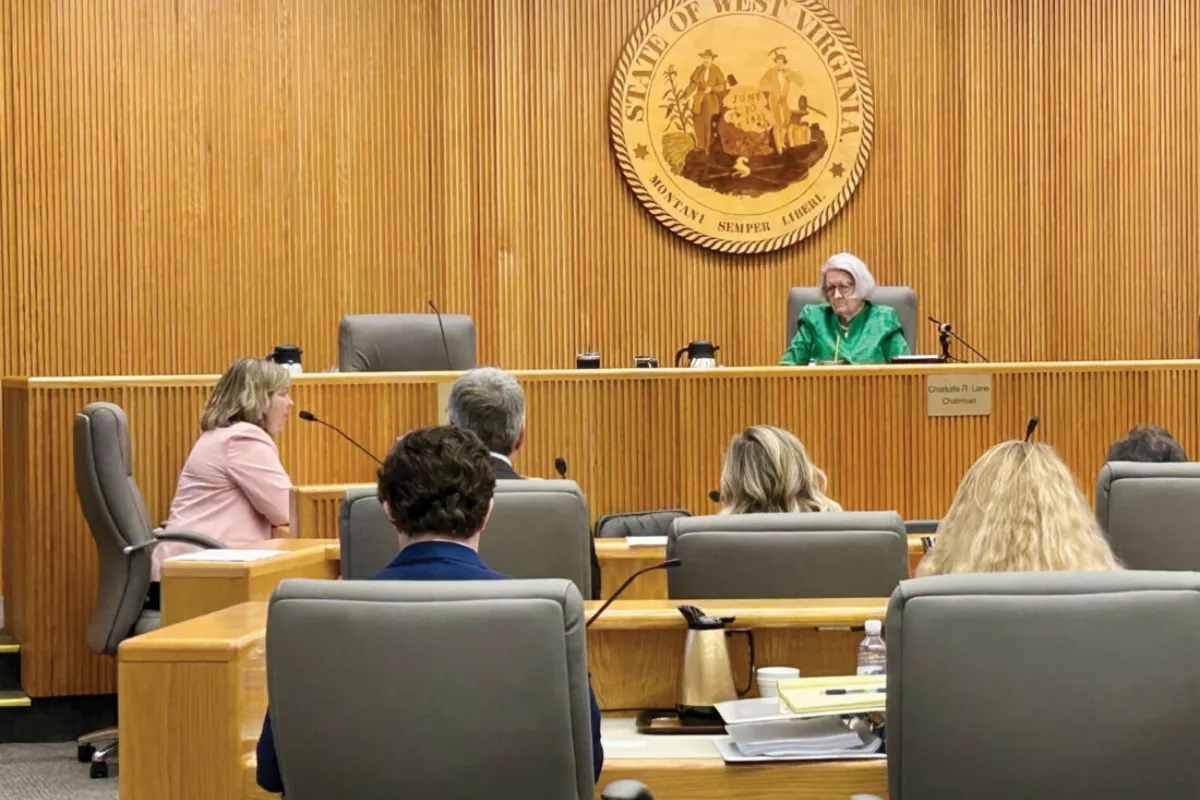West Virginia Public Service Commission Chairwoman Charlotte Lane didn’t hold back during Tuesday’s hearing on broadband expansion. With utilities, internet service providers (ISPs), and state broadband leaders all in the room, Lane made one thing clear: The PSC will not be blamed for stalling broadband access across the state.
“I am just sort of appalled that we are here today still fighting over this issue,” Lane said bluntly. “We need to get something done.”
The evidentiary hearing, held at PSC headquarters in Charleston, focused on how to manage broadband attachments to existing power poles — a key issue for expanding high-speed internet. The discussion stemmed from a 2024 PSC order to create a task force to recommend clear rules for placing fiber cables on poles owned by AEP and FirstEnergy subsidiaries.
That task force, which included representatives from utilities, ISPs, state agencies, and trade groups, released its final recommendations in January. Ideas included creating a rapid response team to settle disputes, sharing pole inspection data, and developing a shared list of approved contractors.
While the PSC adopted some of these ideas in February, not all suggestions had unanimous support. Disagreements over more complex proposals — like building a centralized pole data system — led to Tuesday’s hearing.
One of the key sticking points is data collection. FirstEnergy’s Director of Engineering Services Ronay Tenney defended the company’s decision to only track information needed for electric services. When questioned about why FirstEnergy wouldn’t collect broader data to help broadband providers, Tenney pushed back.
“We never said it was impossible to collect it,” he said. “Our position is that it is not worth it… because they do not serve our electric customers any purpose.”
The proposed centralized Utility Pole Attachment Database would include information like pole age, ownership, height, and existing attachments.
While some of that data is already collected by AEP and FirstEnergy, both companies say gathering it all would be costly and time-consuming. Even though the Office of Broadband has offered federal funds to offset those costs, FirstEnergy remains skeptical.
At one point, when asked if broadband wasn’t a priority, Tenney snapped, “Broadband is absolutely a priority… we want broadband just as much as everybody else.”
Still, FirstEnergy opposes extending the task force’s work, suggesting instead that it work directly with ISPs on a case-by-case basis. The company also insists on managing all pole work itself, using either its own crews or pre-approved contractors — not those hired by ISPs.
Tenney defended this approach, stating, “It’s not as simple as just putting a wire on a pole. It is more complex.”
Yet ISPs remain frustrated. Rebecca Pomeroy, a lawyer for Citynet, highlighted cost discrepancies in similar pole projects across counties. One Citynet project in Gilmer County cost over $5,000, while a nearly identical job in Wood County was almost double. “Would you agree that this calls into question the consistency of your pricing?” she asked.
Tenney replied that while the pricing differences were worth asking about, he wouldn’t link them to county location.
As the hearing continues, Lane made it clear that the PSC expects results — and soon.
“West Virginians are waiting for broadband,” Lane said. “The people in this room can make it happen or be part of the problem. The commission is going to make sure you all are not the problem.”
This hearing represents a critical moment for West Virginia’s broadband future. With utilities, ISPs, and state officials at odds over data, costs, and control, the PSC is stepping in to move the conversation forward. Broadband expansion is no longer a distant goal — it’s an urgent need, and as Chairwoman Lane made clear, excuses won’t be accepted.
















